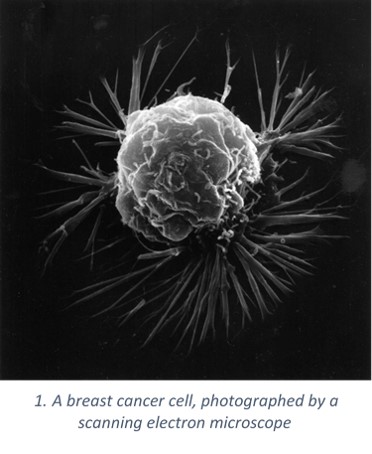As part of NIH’s mission for collaboration and team science, Dr. Matthew Ellis, Co-Principal Investigator of the CPTAC Proteogenomic Translational Research Center and Dr. Bing Zhang, Principal Investigator of the CPTAC Proteogenomic Data Analysis Center, both at Baylor College of Medicine, recently released a study focused on the immune environment of Luminal B (LumB) breast cancer tumors on October 30th, 2019 in the Journal of the National Cancer Institute (advanced version online). The NCI estimates that the LumB subtype of ER-positive (ER+) breast cancer makes up about 10-20 percent of all breast cancer cases and exhibit high tumor grade and proliferation rates, along with reduced survival.
science, Dr. Matthew Ellis, Co-Principal Investigator of the CPTAC Proteogenomic Translational Research Center and Dr. Bing Zhang, Principal Investigator of the CPTAC Proteogenomic Data Analysis Center, both at Baylor College of Medicine, recently released a study focused on the immune environment of Luminal B (LumB) breast cancer tumors on October 30th, 2019 in the Journal of the National Cancer Institute (advanced version online). The NCI estimates that the LumB subtype of ER-positive (ER+) breast cancer makes up about 10-20 percent of all breast cancer cases and exhibit high tumor grade and proliferation rates, along with reduced survival.
Bringing together microarray data from Alliance/Alliance for Clinical Trials in Oncology neo-adjuvant aromatase inhibitor trials (Z1031), Dr. Ellis and Dr. Zhang examined whether aggressive LumB, endocrine-therapy-resistant tumors were able to progress by developing immune tolerance mechanisms. Strikingly, researchers were able to identify IDO1 as a key factor in the development of poor neo-adjuvant response in endocrine-therapy-resistant LumB tumors; previously believed to be primarily associated with triple negative or metastatic breast cancers. The upregulation of IDO1 strongly correlated with increases in other immune checkpoint markers (LAG3 and PD1) and tumor proliferation markers (Ki67), providing targetable immune checkpoint components for drug development and therapy. This study demonstrates yet another unknown divergence in tumor micro-environments which have implications in patient treatment, providing a rationale for immune checkpoint inhibition in poor outcome ER+ breast cancer.
These advances in breast cancer diagnosis that allow for the development of precision oncology have garnished support by the National Cancer Institute, Susan G. Komen Promise, and the Cancer Prevention and Research Institute of Texas (CPRIT). Additionally, support for this project was also provided by Astra Zeneca, Novartis Pharmaceutical Corporation, and Pfizer Inc, demonstrating a broad interest in this area of research. Both Dr. Ellis and Dr. Zhang hold McNair Scholars; Dr. Ellis is also the 2019 Susan G. Komen Brinker Recipient for Scientific Distinction in Clinical Research.

